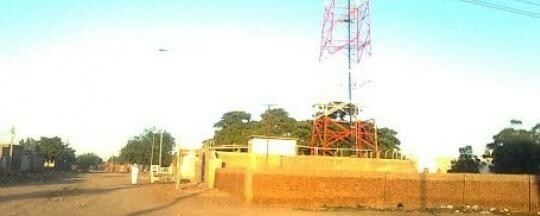Numerous Sudanese individuals have raised concerns about the disruption of communication services in the country since last week, leading to the isolation of states and causing widespread anxiety among citizens.
The network disconnect has also rendered e-wallets inaccessible amidst cash shortages in the ongoing devastating war.
Mustafa Saeed, a Sudanese journalist, told Radio Tamazuj Sunday that they face significant challenges in their profession due to the communication blackout. “I can’t stay updated, and I am unable to communicate with my sources,” Saeed explained.
He further expressed the difficulty in reaching some of his family members who remain in conflict zones, highlighting the broader impact of the communication breakdown on personal and professional connections.
Badr al-Din al-Daw, a Sudanese citizen, emphasized the numerous challenges arising from the recent disruption of communication networks, particularly amid the ongoing war in the country. Al-Daw pointed out that the communication blackout has significantly impacted transactions conducted through mobile applications.
“I used to send money to my family through Bankak (Mobile Money), but now I can’t do that anymore,” Al-Daw lamented.
Major mobile telecommunications networks in Sudan, including Zain, Sudani, and MTN, have been offline since last week. The Sudanese Bar Association has characterized this as a “communications” war between the conflicting military parties, who have exchanged accusations regarding the severed communication lines.
The association’s statement highlighted the conflict of interests between the warring factions, leading to a state of apprehension and fear among the Sudanese people across various sectors due to communication interruptions, service fluctuations, and the complete cessation of some companies.
As a result of conflict between the Sudanese army and Rapid Support Forces since April 2023, aid organizations have warned of increased hunger in Sudan and famine-like circumstances in certain places.




